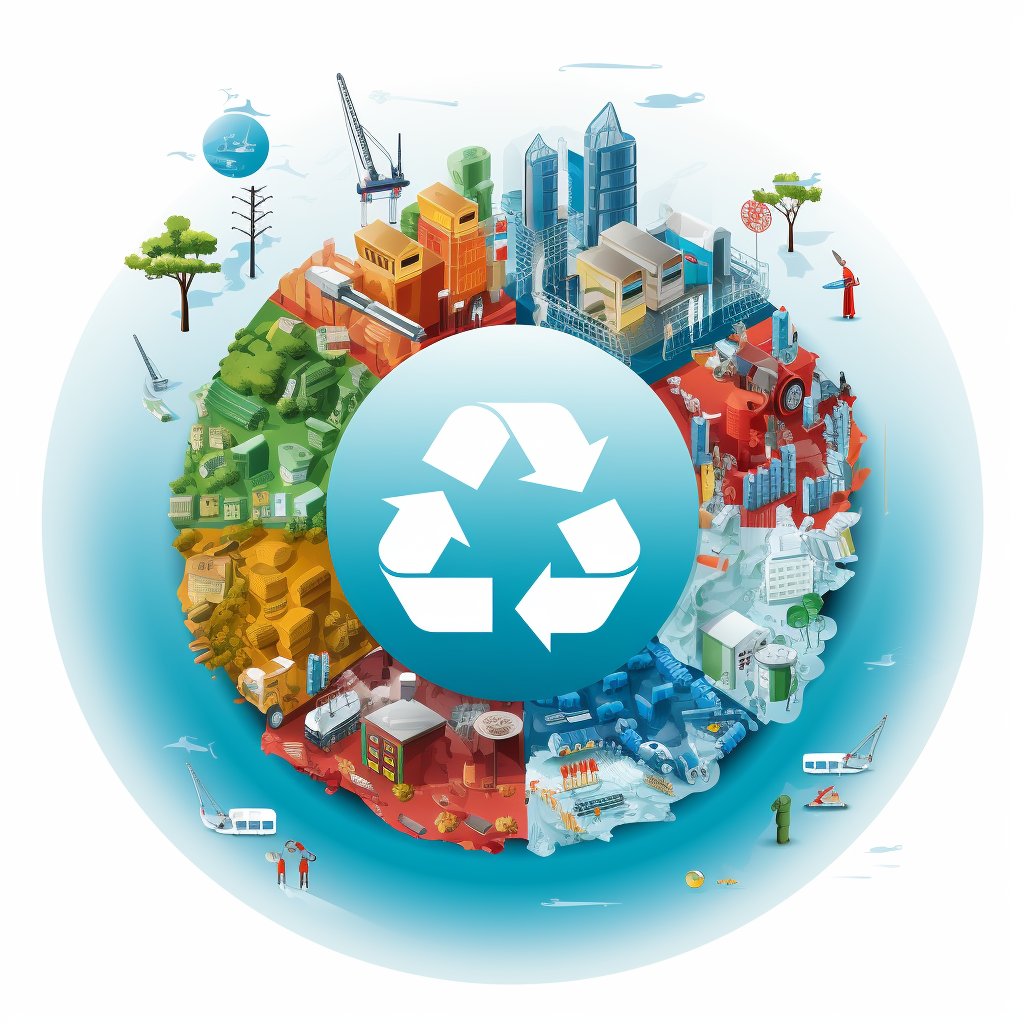In recent years, the issue of plastic waste management has gained global attention. One of the most effective ways to reduce plastic waste is to implement producer responsibility schemes.
As concerns over the environmental impact of plastics continue to grow, there has been increasing interest in producer responsibility schemes (PRS) to promote sustainability and reduce waste. PRS places the responsibility for managing waste on producers rather than local authorities, incentivising them to design more sustainable products and manage their waste in a more environmentally friendly way.

What are Producer Responsibility Schemes?
Producer Responsibility Schemes (PRS) are a series of measures that shift the responsibility of managing the waste generated by a product from the end-consumer to the producer. The schemes include measures such as recycling, reusing, and reducing the waste generated by the product. By doing so, producers are incentivised to design their products to minimise waste and promote sustainability.
Types of Producer Responsibility Schemes:
There are different types of PRS, which include:
Extended Producer Responsibility (EPR)
- EPR is the most common type of PRS. Under EPR, producers are responsible for the entire life cycle of their products, from design to disposal. This includes the collection, sorting, and recycling of the waste generated by the product.
Product Stewardship
- Product stewardship is a voluntary program in which manufacturers, retailers, and consumers collaborate to reduce the product’s environmental impact. This can include implementing recycling programs and creating more sustainable packaging options.
Deposit Refund System
- A deposit refund system involves charging a deposit on a product that is refunded when the product is returned. This system encourages consumers to return their used products for recycling, reducing the amount of waste generated by the product.
PRS is used in a variety of industries, including:
Packaging Industry
- The packaging industry generates a significant amount of plastic waste. PRS can be used to encourage the use of sustainable packaging materials and reduce the amount of waste generated by the industry.
Automotive Industry
- The automotive industry is also a significant contributor to plastic waste. PRS can be used to encourage the development of more sustainable vehicle components and promote the recycling of end-of-life vehicles.
Electronics Industry
- The electronics industry generates a significant amount of electronic waste. PRS can be used to encourage the development of sustainable electronics and promote the recycling of electronic waste.
Material Properties:
Material properties play an important role in the success of PRS. Materials that are easily recyclable and have a lower environmental impact are more likely to be included in PRS. These materials include:
Bioplastics
- Bioplastics are plastics made from renewable resources such as cornstarch and sugarcane. These materials have a lower environmental impact and are easily recyclable.
Recyclable Plastics
- Recyclable plastics can be recycled multiple times without losing their properties. These materials are easily recyclable and have a lower environmental impact.
Future Trends in Recycling:
The future of recycling looks promising. With technological advancements and a growing awareness of the need for sustainability, we can expect to see more innovative solutions to managing plastic waste. Some of the future trends in recycling include:
Chemical Recycling
- Chemical recycling involves breaking down plastic waste into its chemical components, which can then be used to create new products. This process can potentially recycle all types of plastics, including those that are difficult to recycle.
Biodegradable Plastics
- Biodegradable plastics are plastics that microorganisms can decompose into water, carbon dioxide, and other natural substances. These materials have a lower environmental impact and are easily recyclable.

Global Impact:
PRS has had a significant impact on reducing plastic waste globally. According to a report by the Ellen MacArthur Foundation, implementing PRS could reduce global plastic waste by 80% by 2040.
Future Market Prognosis:
The future of PRS looks promising. With technological advancements and a growing awareness of the need for sustainability, we can expect to see more innovative solutions to managing plastic waste. The global PRS market is projected to grow at a CAGR of 7.4% from 2021 to 2028, indicating that the demand for sustainable products will continue to increase.
The future of PRS looks promising, with advancements in technology and a growing awareness of the need for sustainability. The global demand for sustainable products is expected to increase, indicating that the future of PRS is bright.
Producer Responsibility Schemes Around the World:
PRS has been implemented in various countries worldwide, with different approaches and impacts. Here are some examples:
Europe
- The European Union has been a leader in implementing PRS, with the EPR directive requiring producers to take responsibility for the entire life cycle of their products. This has led to a significant reduction in plastic waste in Europe.
Japan
- Japan has implemented a deposit refund system for PET bottles, which has led to a 90% recycling rate for PET bottles in the country.
United States
- The United States has implemented various PRS programs, including EPR and product stewardship programs. These programs have had varying levels of success, with some states having more effective programs than others.
Producer Responsibility:
Producer responsibility schemes are an effective way to reduce plastic waste and promote sustainability. Different types of PRS, including EPR, product stewardship, and deposit refund systems, can be applied to various industries. Material properties play an important role in the success of PRS, with easily recyclable and environmentally-friendly materials being more likely to be included. Market price developments and global impact have shown that implementing PRS can significantly reduce plastic waste. The future of PRS looks promising, with advancements in technology and a growing awareness of the need for sustainability. As more innovative solutions to managing plastic waste emerge, we expect to see a shift towards a more sustainable and circular economy.
Incorporating Producer Responsibility Schemes (PRS) into waste management strategies is an essential step towards a more sustainable future. By holding producers accountable for the waste they generate, PRS incentivises the development of more eco-friendly products and encourages responsible waste management. As a consumer, you can promote sustainable waste management by making informed choices and supporting companies prioritising environmental responsibility.
As we’ve seen, Producer Responsibility Schemes (PRS) have the potential to make a significant impact on the environment and the economy. From reducing waste and carbon emissions to promoting innovative, eco-friendly products, PRS are essential for creating a more sustainable future. As we grapple with the challenges of climate change and environmental degradation, PRS offers a promising way forward for the plastics and recycling industry. By working together to promote sustainable waste management practices and supporting the development of innovative solutions, we can create a brighter future for ourselves and the planet.







